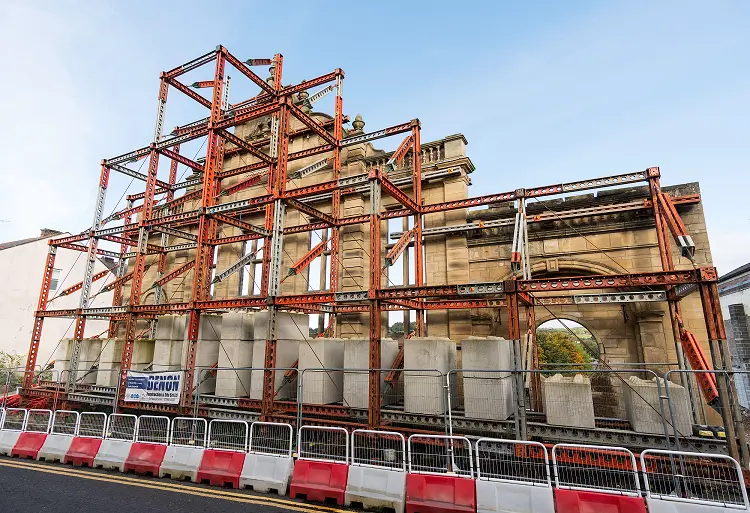
Basement digs are amongst the most complex type of project that we come across, and will normally relate to a basement being excavated underneath the existing property.
In this article we look at the five most important things you need to know about basement digs and what are the challenges.
1. If the works are not carried out correctly, the risk of considerable damage and collapse is extremely high. Even when the works are carried out carefully, correctly, and are in accordance with all the plans and drawings, some degree of inevitable damage remains likely, such as cracking to the building being worked on, and/or to the adjoining properties. This inevitable damage is excluded from any insurance policy.
2. In conjunction with point one, the methods used when excavating a basement tend to involve levels of vibration which are again likely to generate a degree of inevitable damage, depending on how invasive the methods are. For example, there are multiple methods of piling, and ‘driven’ piling would typically create more vibration than ‘screw’ piling. When underwriting a basement project and determining the price and terms to apply, we will consider the methods being used, and the level of risk those methods involve. Our in-house structural engineer may also need to review the proposed plans and drawings, and therefore, it can often take a little more time for us to agree formal quote terms.
3. The experience of the contractor undertaking the basement dig is hugely important to us, as it should be to your client, and we will request examples of previous basement projects they have completed, should the information not be readily available online (on their website). We may also request copies of their current insurances, so we have confirmation that they have the relevant experience and cover for the work they are set to undertake. Much to our surprise, we frequently come across contractors who are undertaking basement excavations who have a specific basement exclusion in their policy!
4. Similarly, we will review the experience of the Architect and Structural Engineer, who also play a crucial part in a successful basement excavation. The contractor will be expected to carry out the work according to the plans and method statements drawn up by the other project professionals, so whilst the contractor could be the best in the country, if the plans or methods are flawed, the consequences could be catastrophic.
5. Any basement excavation will be notifiable under the Party Wall Act (unless it was detached and many metres away from the nearest property), which means two things:
a. Your client is legally bound to make good any damage to neighbouring property as a result of the work carried out.
b. Non-Negligent Liability insurance will be necessary to ensure your client has as much cover as is available to protect them, should damage arise from the works where nobody is at fault.
The risks with basements do not stop with collapse of the existing structure. Surface water running off and flooding from drains present a real risk during construction and post build. Damage to neighbouring basements has become a real problem in London where the propensity to extend homes in the only way possible has been very common. Remember, there is no such thing as an easy basement build, so hiring the best and most experienced contractors is a must.




















